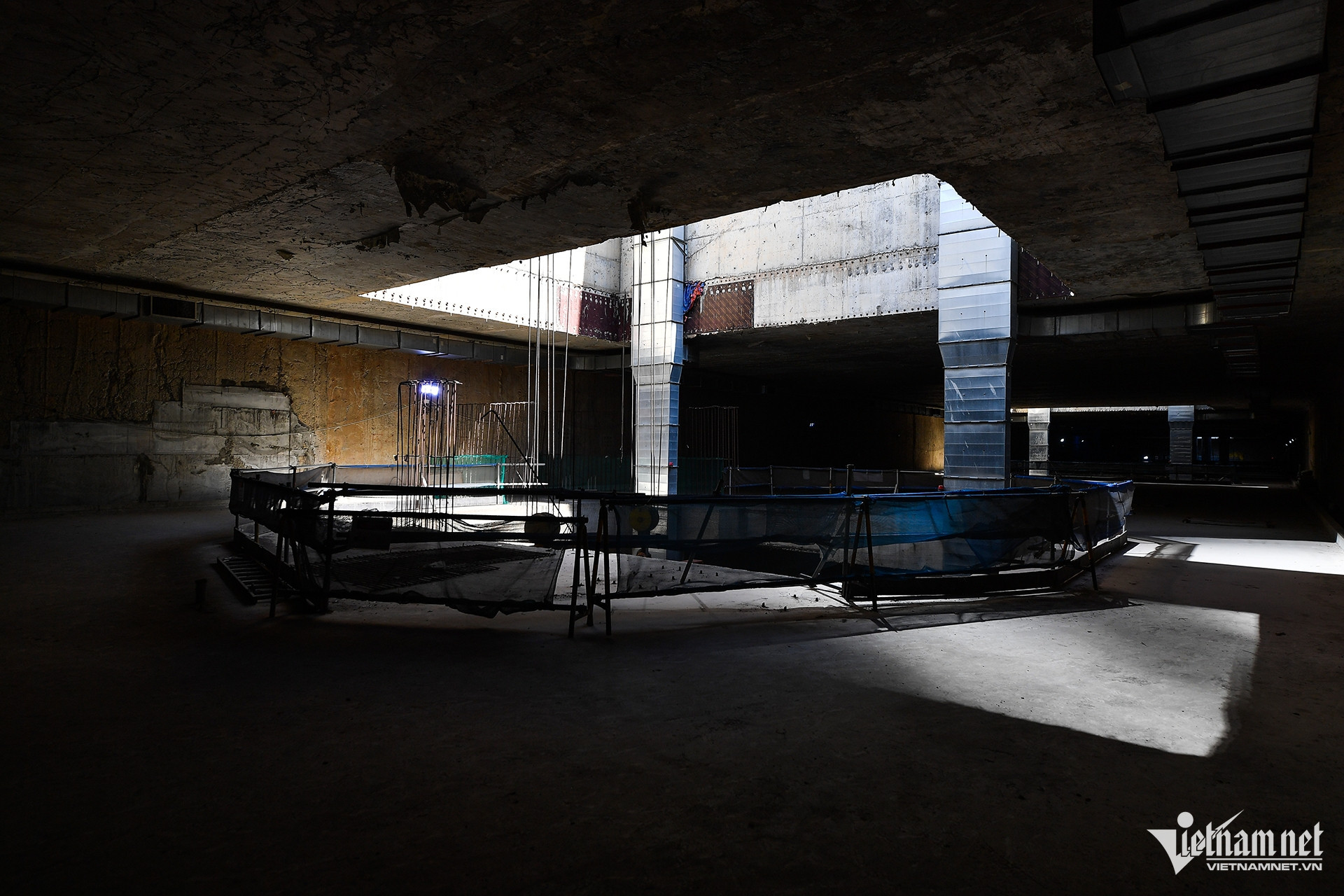
According to Hanoi’s Urban Railway Management Board (MRB), as of November 29, the pilot metro line has completed 647 meters of underground tunneling, connecting the Lieu Giai-Kim Ma intersection to the area near Nui Truc Street in Ba Dinh District. This marks a significant milestone for the project, with overall progress now at 80.32%.
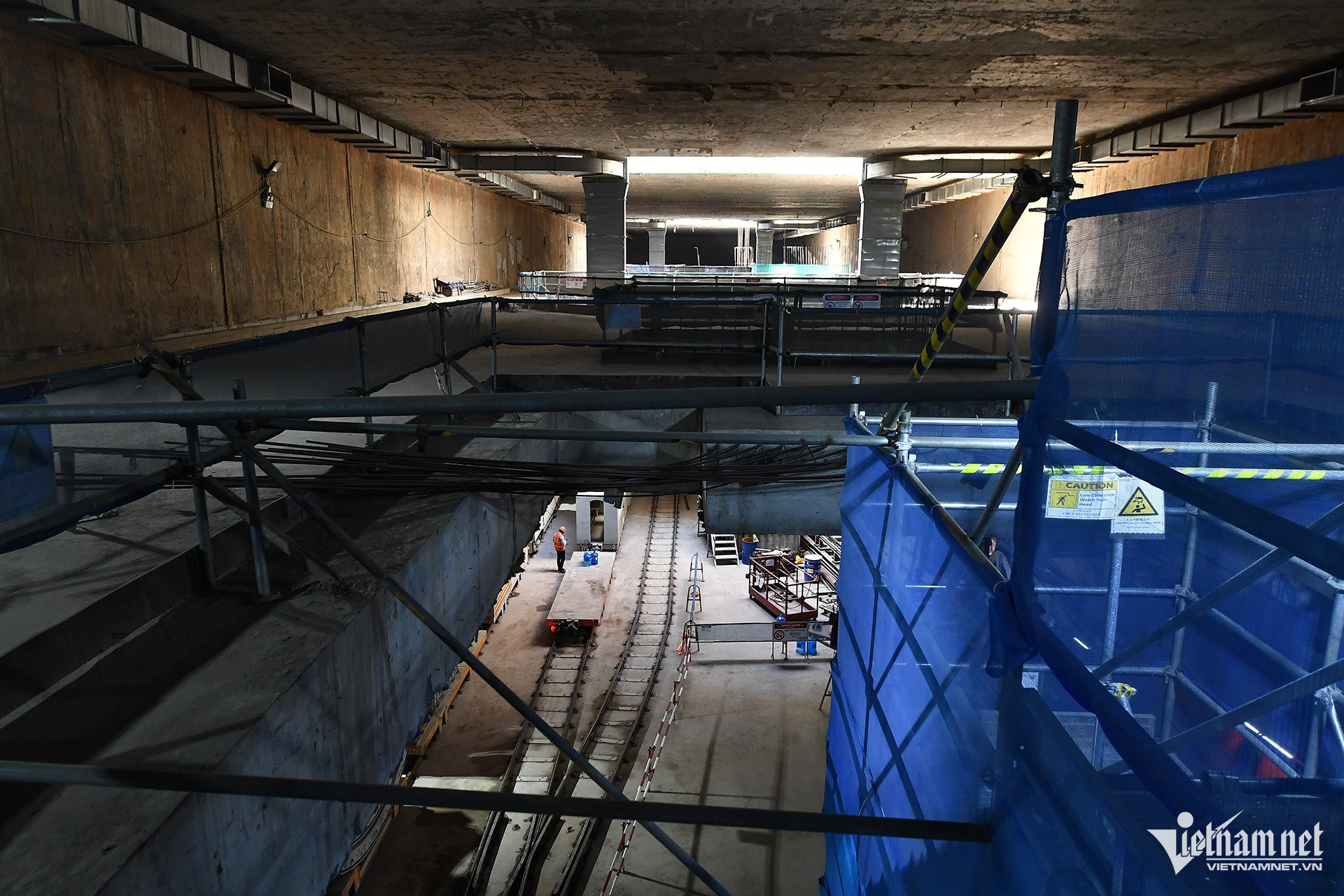
The metro line's underground section includes four stations (S9 to S12). Station S10 is under external structural construction, while Station S11 has completed its concrete base and is preparing for jet grouting work at the entry and exit points for the TBM. Station S12 is advancing on structural reinforcement and excavation.

The TBM machine, built by Germany’s Herrenknecht, measures over 100 meters in length and weighs approximately 850 tons. It started its journey from Station S9 (Kim Ma) and will be dismantled after reaching Station S12.

This metro line features a total of 3,488 tunnel rings, manufactured by AMACCAO in Ha Nam Province. Among these, 120 are heavy-duty reinforced rings, 30 are equipped with monitoring sensors, and the remaining are standard reinforced concrete rings.
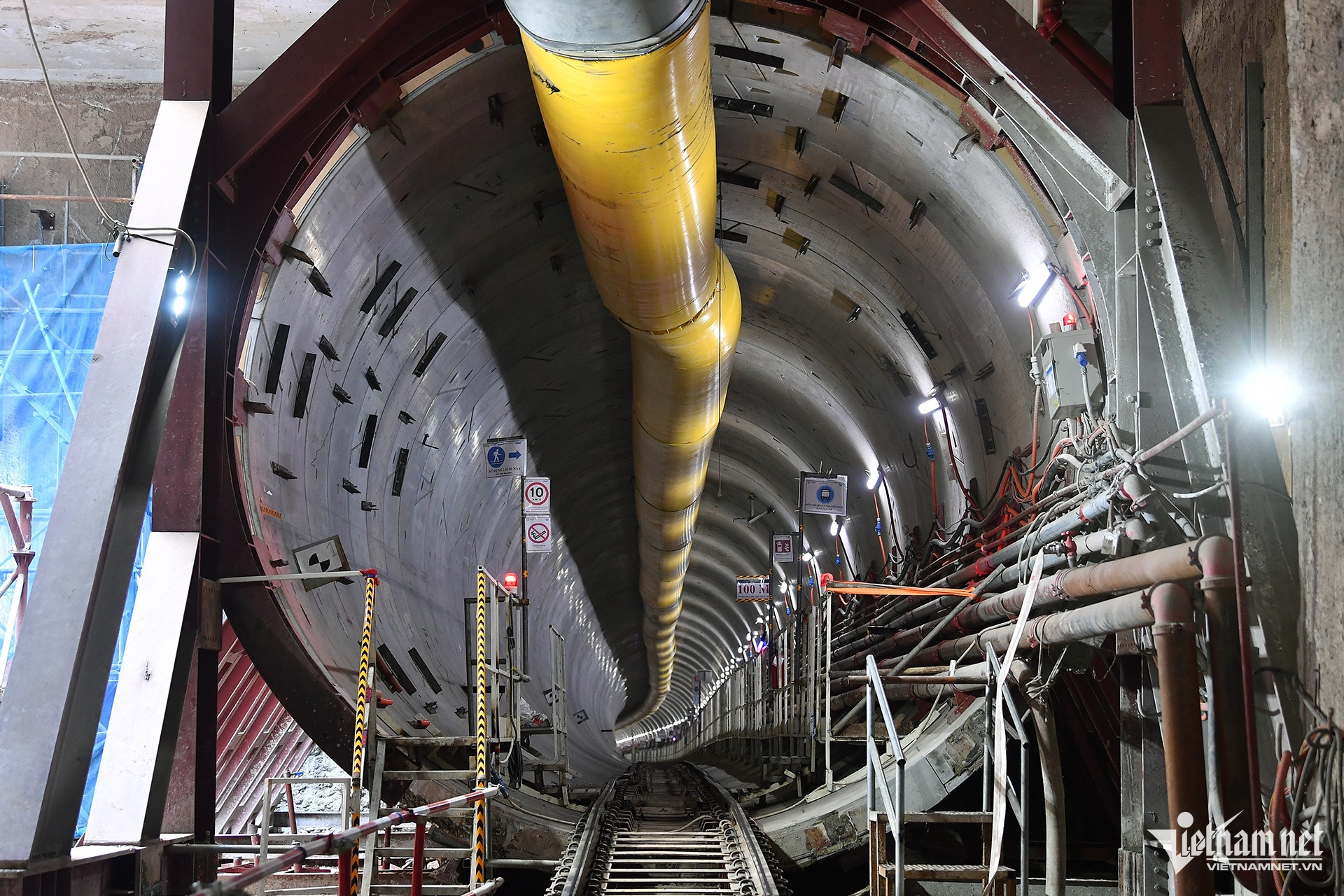
The project employs cutting-edge TBM technology, with specialized robots assisting in tunnel lining and cutterhead changes. Engineers are working in two shifts (7:00 AM - 7:00 PM and 7:00 PM - 7:00 AM), with over 150 personnel onsite. Experts include seasoned Vietnamese engineers and international specialists such as Camelo, a Colombian expert in tunnel construction.

Additional expertise has been drawn from Italy, leveraging techniques from the Ho Chi Minh City Metro Line 1 project (Ben Thanh-Suoi Tien). Italy’s TBM construction specialists, along with the International Tunneling Association, are providing vital technical support.
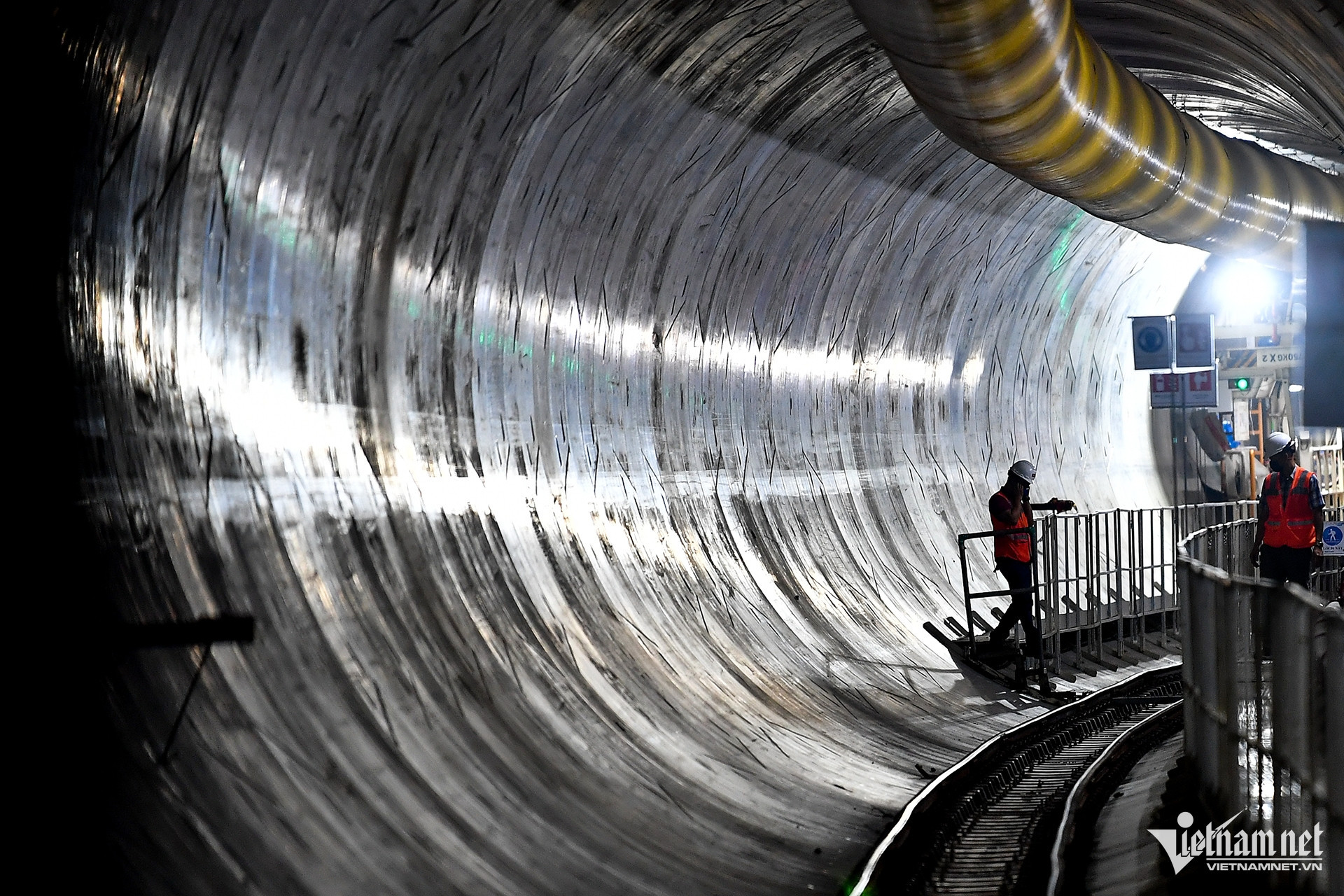
The TBM has successfully navigated through a reinforced geological layer as of November 28. Detailed assessments of Hanoi’s complex geological conditions continue, ensuring the tunneling process progresses smoothly.
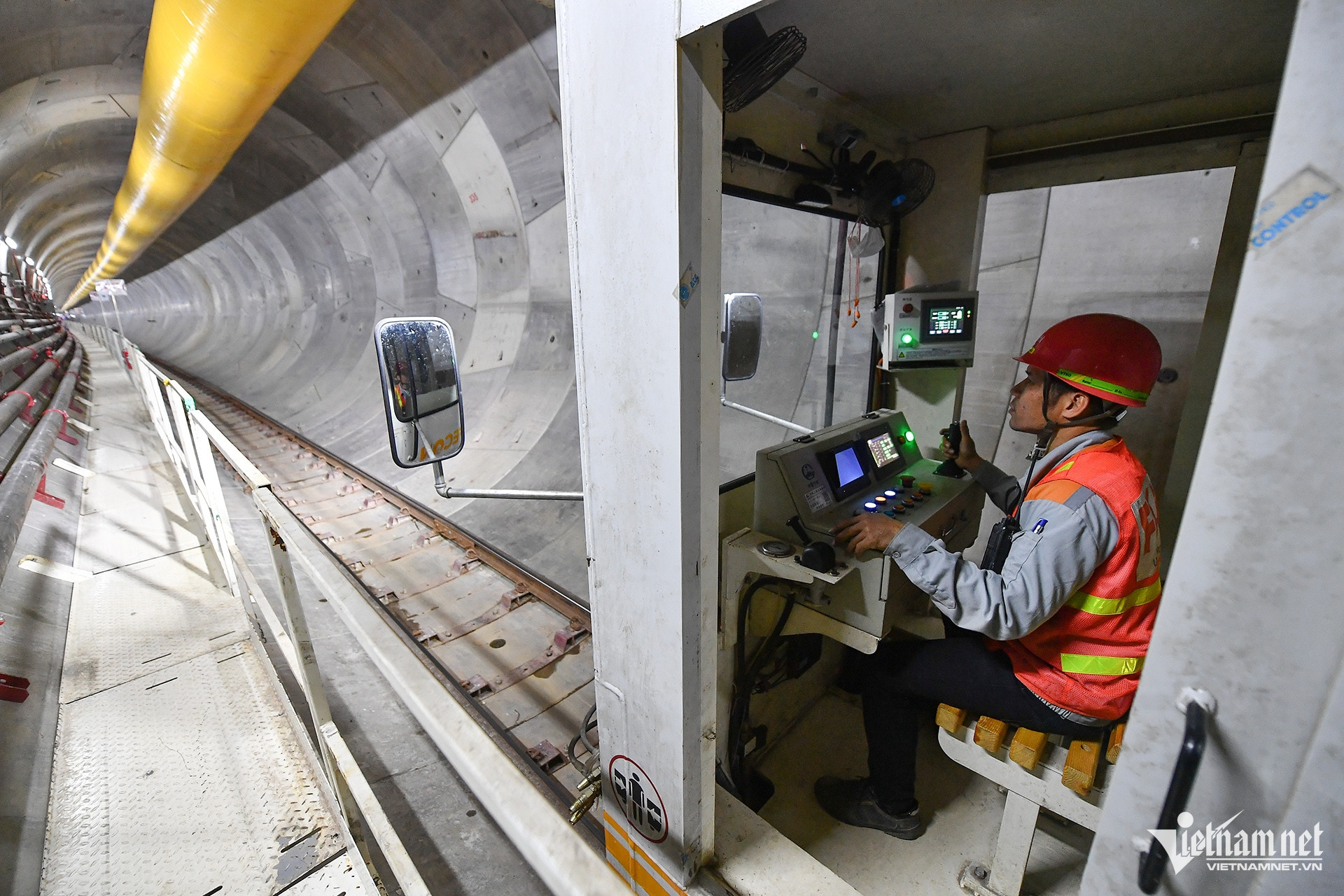
Above ground, at the Lieu Giai-Kim Ma intersection, excavation operations include the removal and treatment of mud extracted from underground, which is transported for disposal.
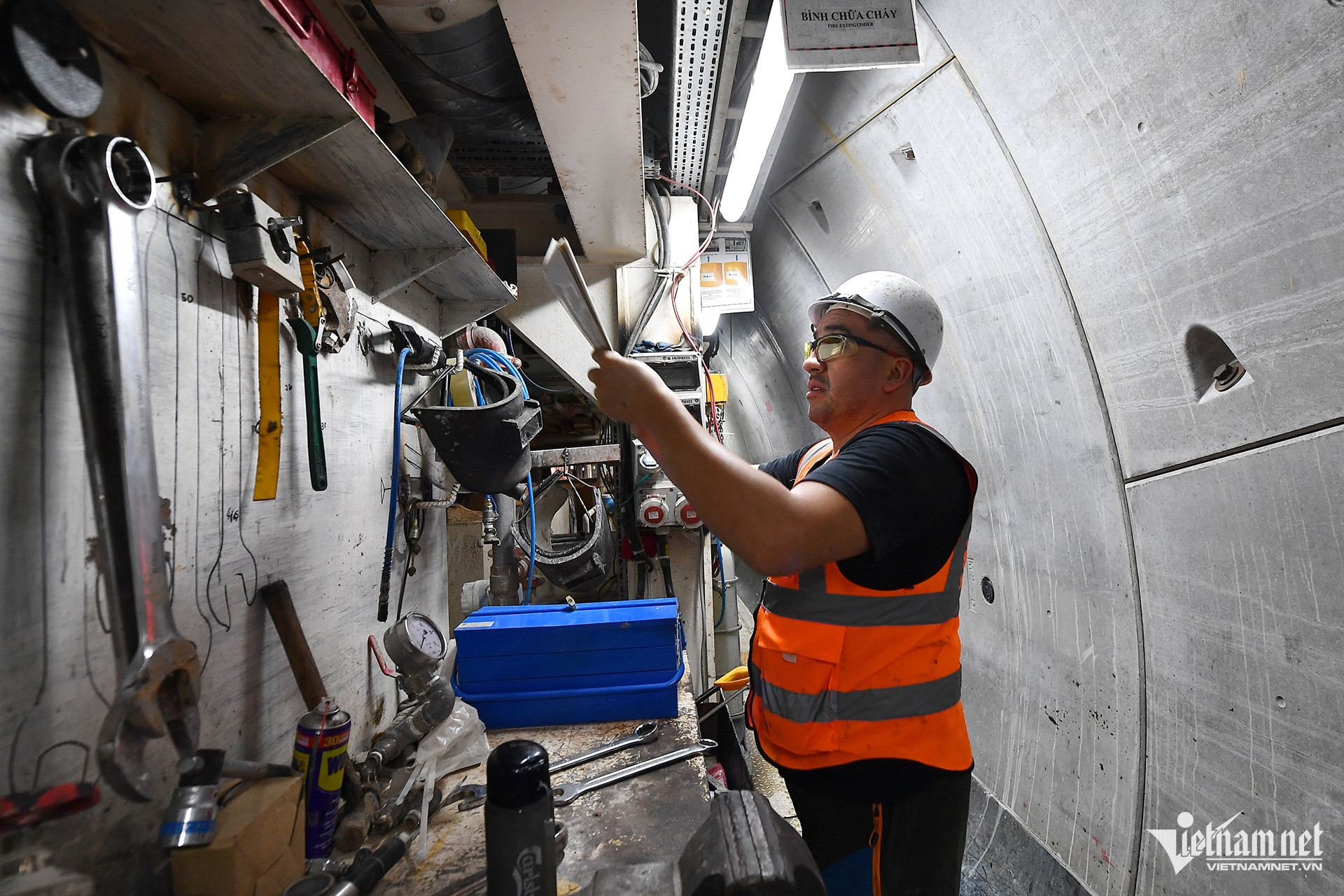
The Nhon-Hanoi Railway Station metro line spans 12.5 kilometers, including 8.5 kilometers of elevated tracks and 4 kilometers of underground tunnels. The route begins in Nhon, runs along National Highway 32 through Cau Dien, Mai Dich, and Kim Ma, and terminates at Hanoi Station on Tran Hung Dao Street.
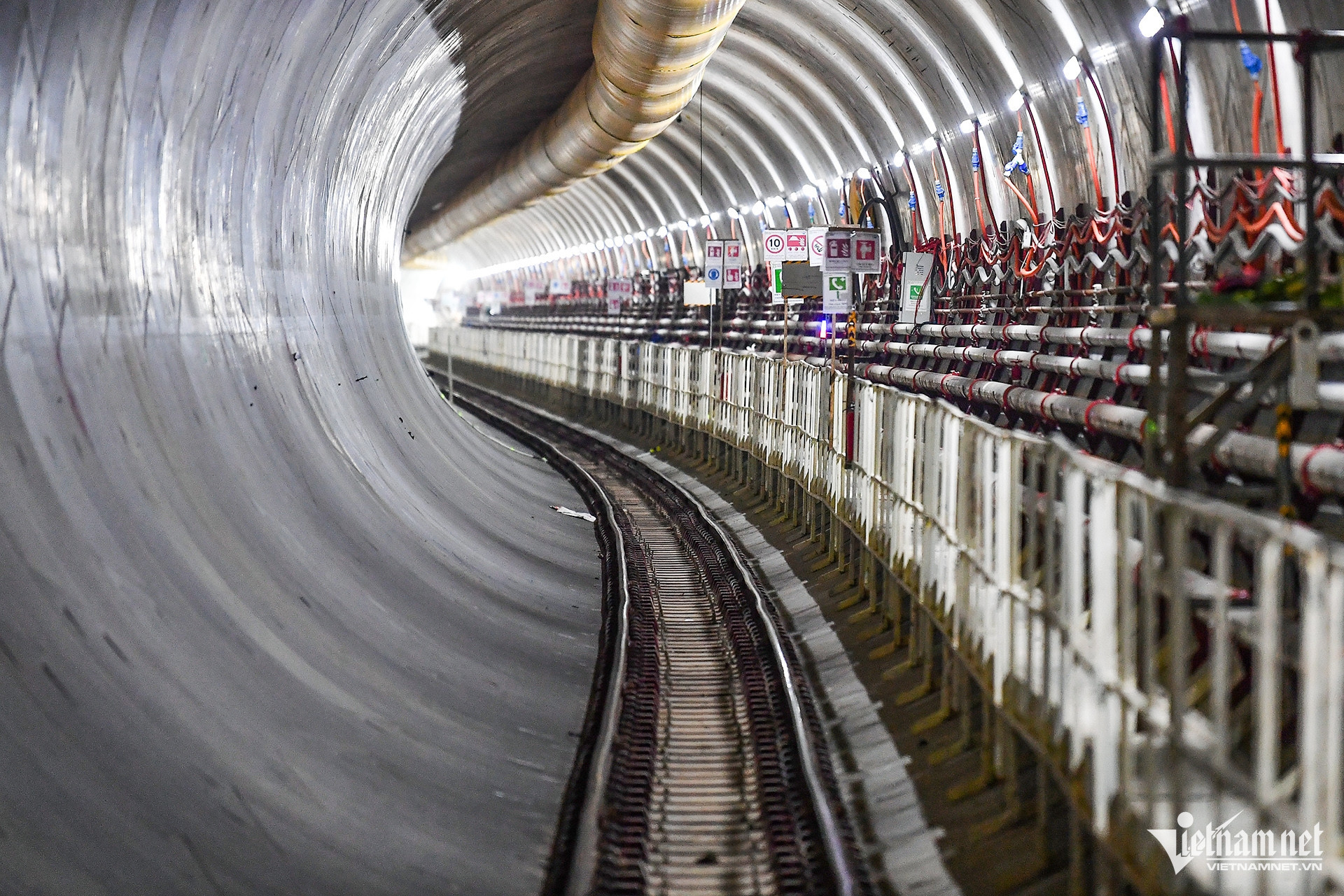
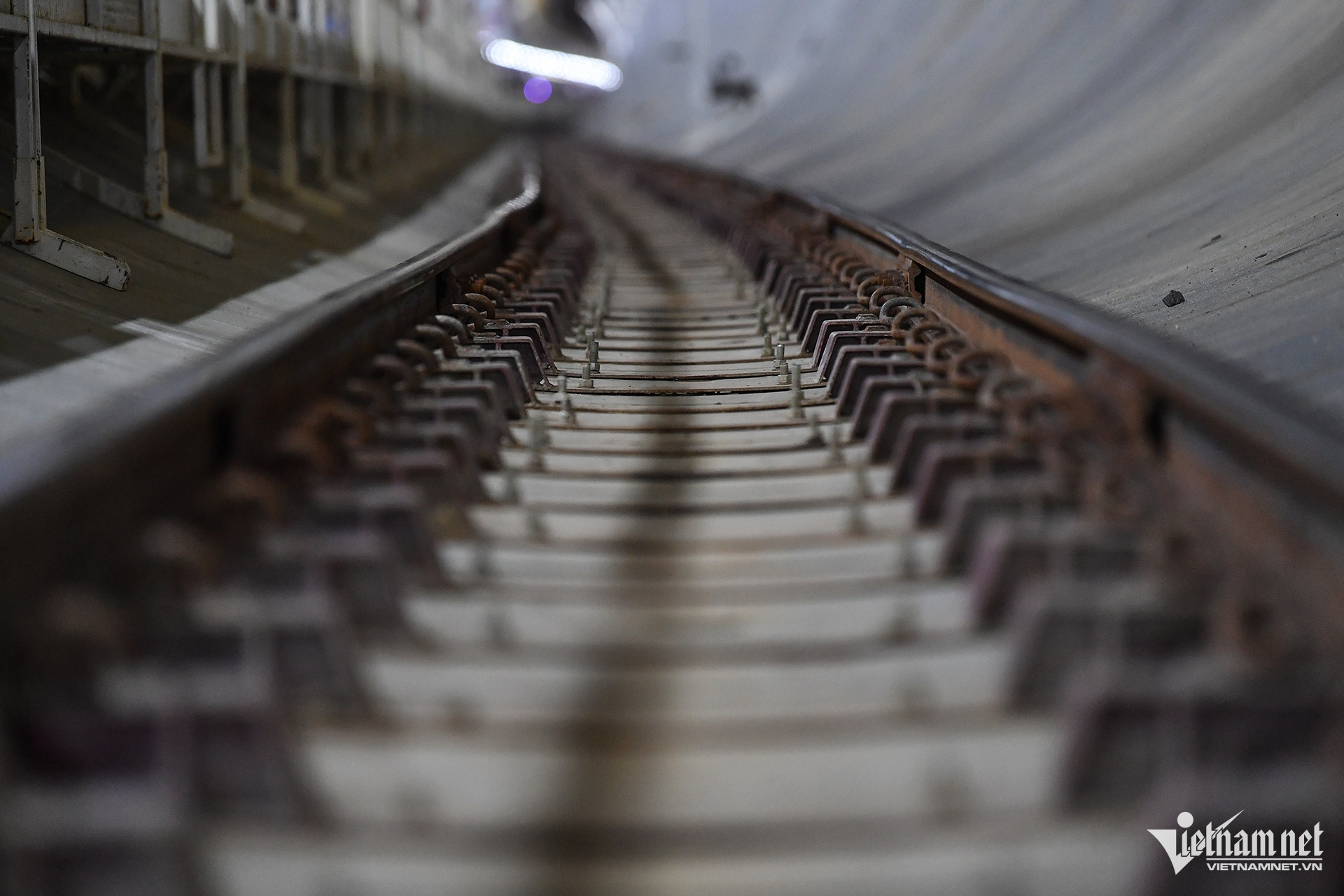
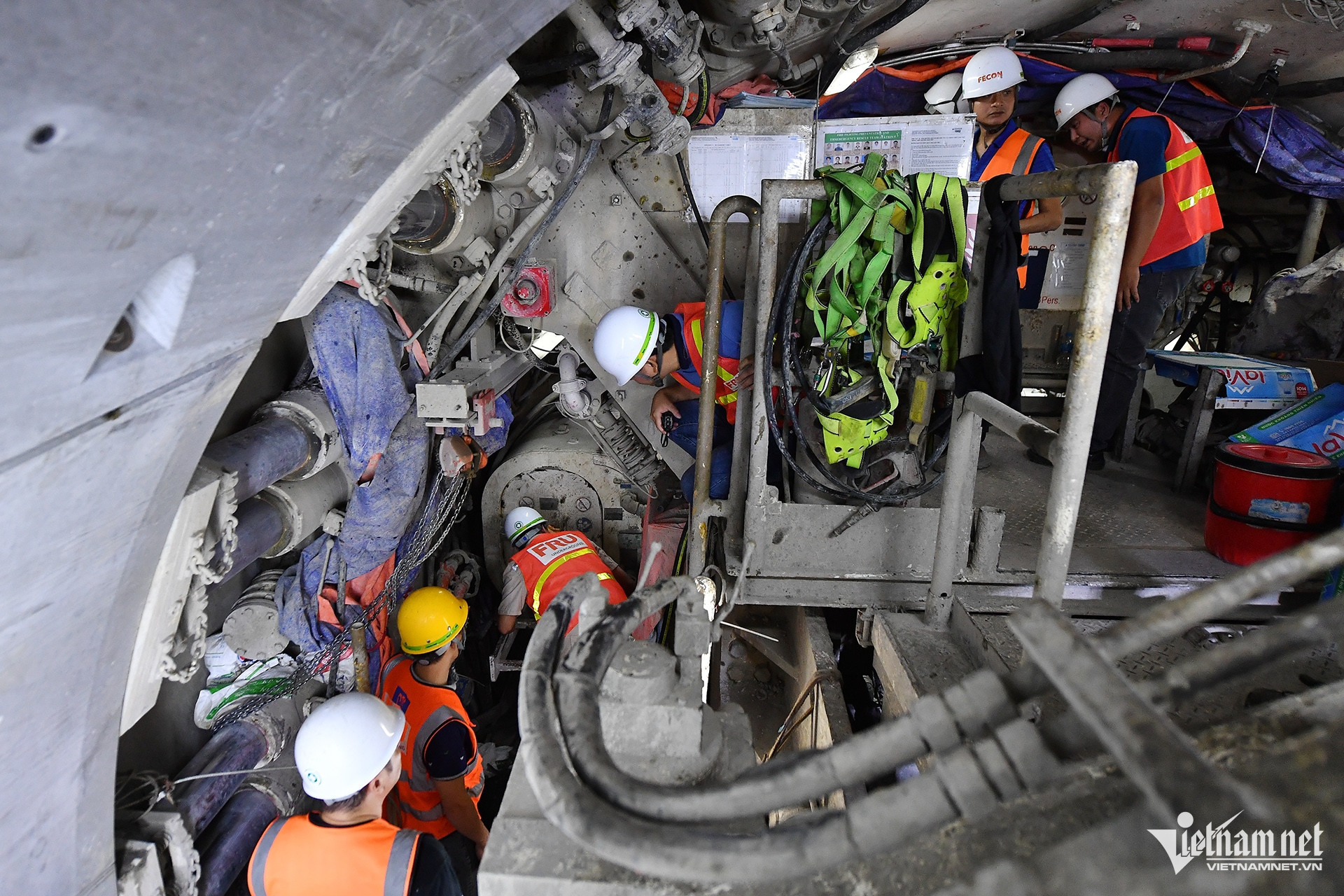
 |
 |



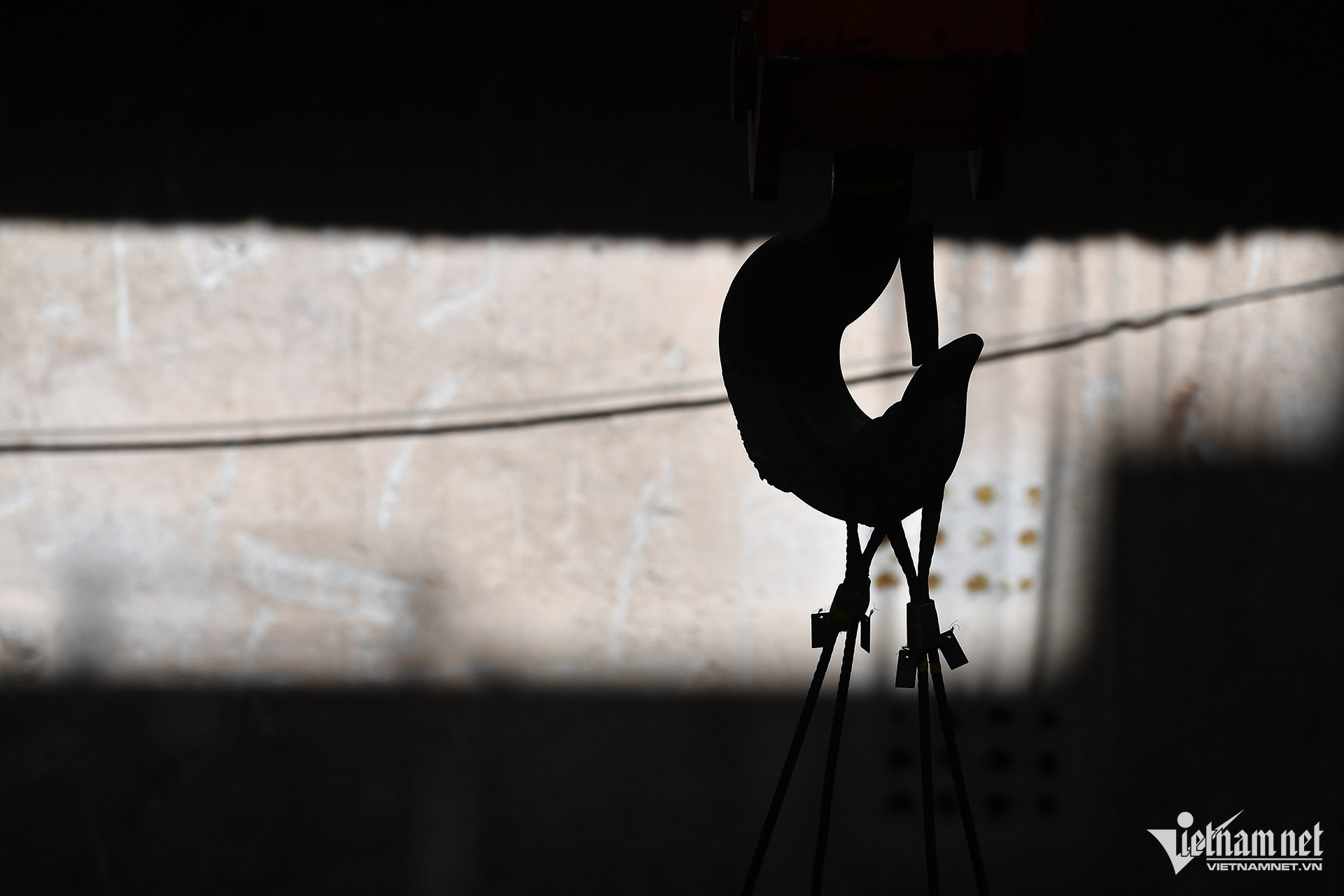
Key statistics:
The elevated section is complete, while the CP03 package (tunnels and underground stations) has reached 50.54% completion.
The double-track railway adopts European UIC 60 standards, ensuring state-of-the-art quality.
The metro project’s efficient use of TBM technology and advanced methodologies marks it as a major leap forward in Hanoi’s urban infrastructure development.
Hoang Ha - Nguyen Duc